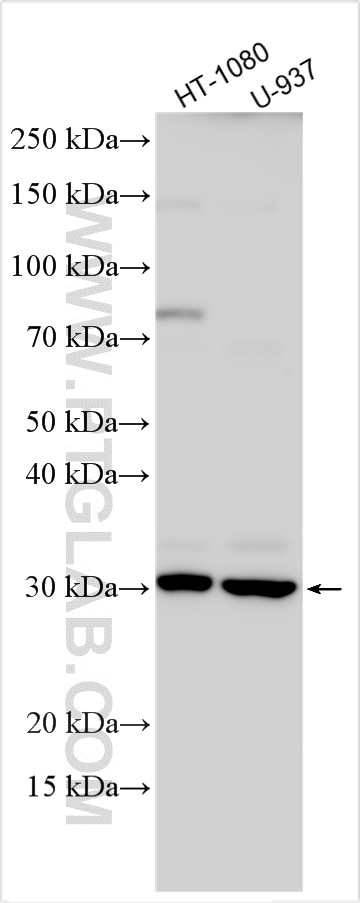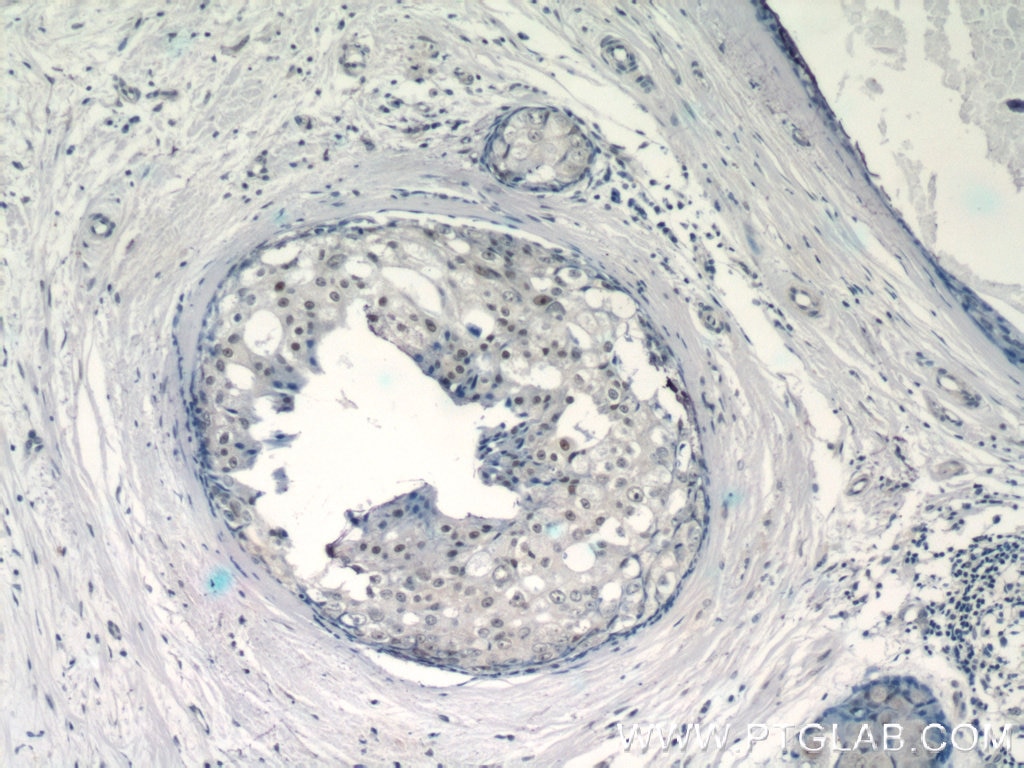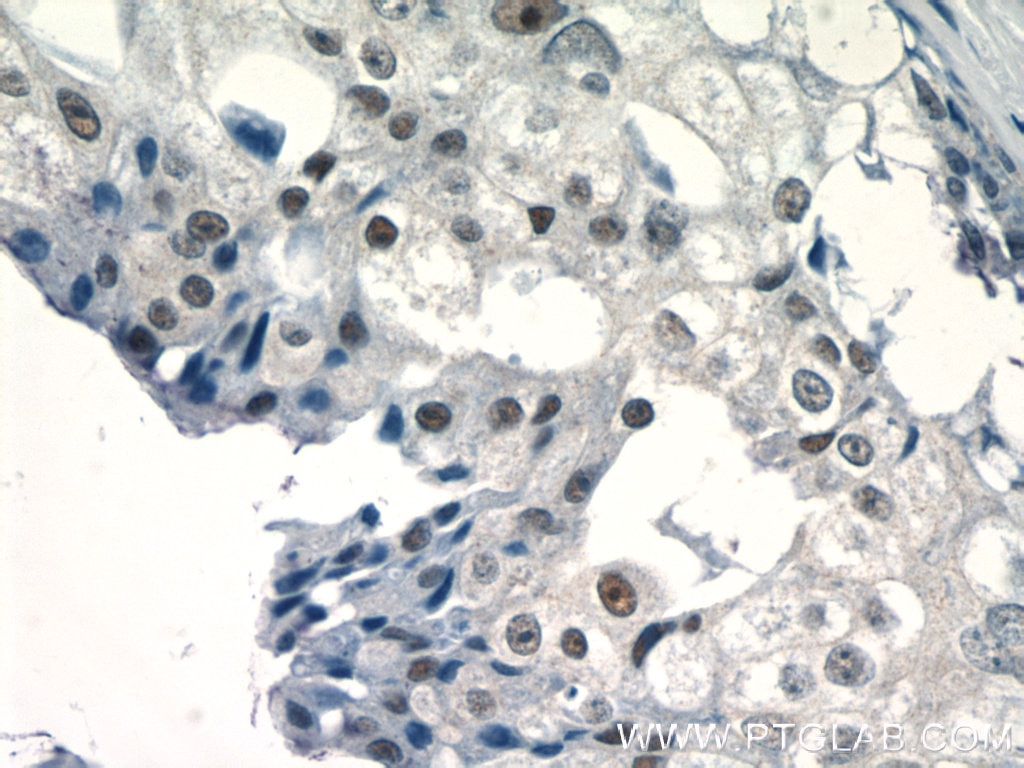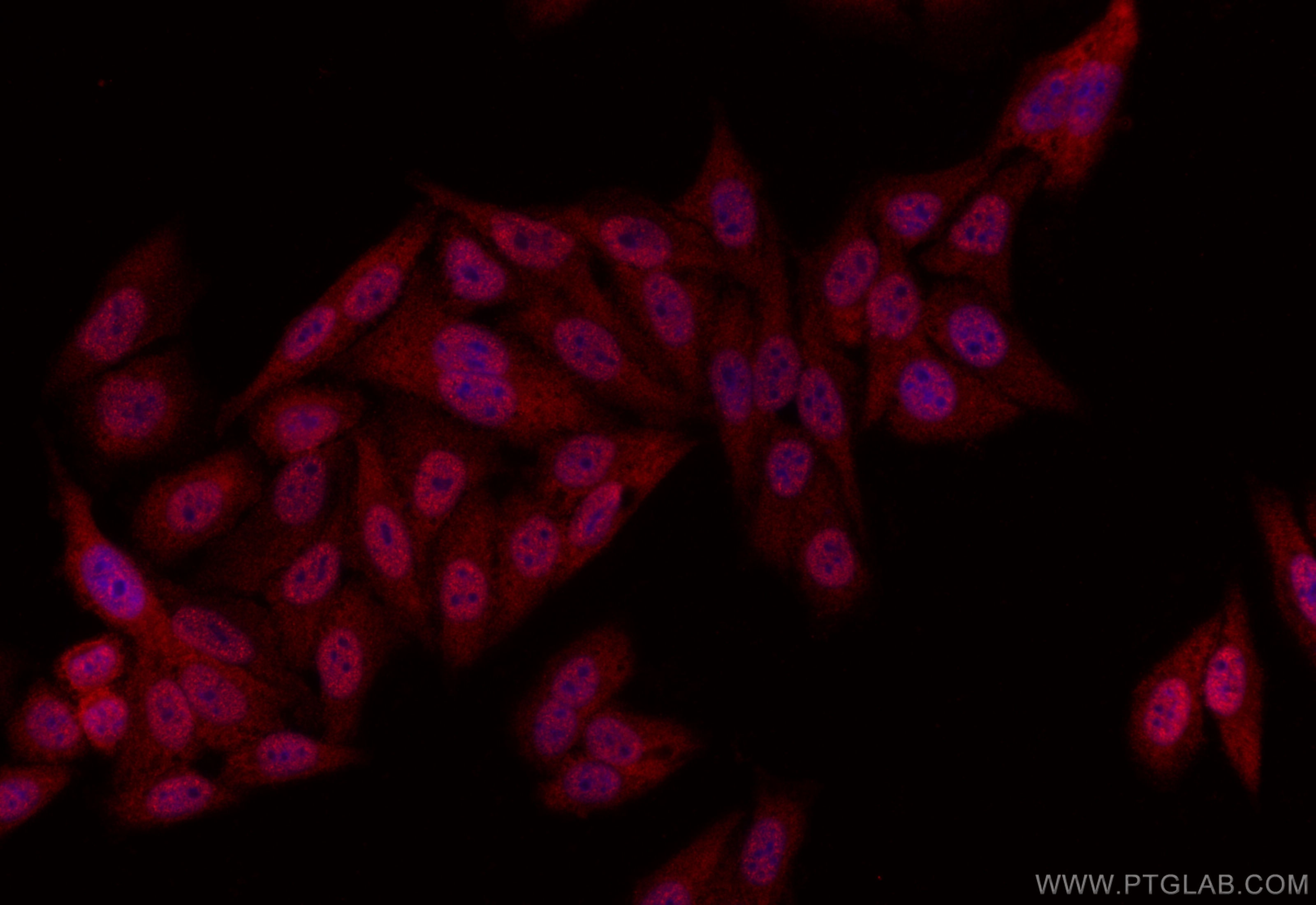Anticorps Polyclonal de lapin anti-EID1
EID1 Polyclonal Antibody for WB, IHC, IF/ICC, ELISA
Hôte / Isotype
Lapin / IgG
Réactivité testée
Humain
Applications
WB, IHC, IF/ICC, ELISA
Conjugaison
Non conjugué
N° de cat : 11734-1-AP
Synonymes
Galerie de données de validation
Applications testées
| Résultats positifs en WB | cellules HT-1080, cellules U-937 |
| Résultats positifs en IHC | tissu de cancer du sein humain il est suggéré de démasquer l'antigène avec un tampon de TE buffer pH 9.0; (*) À défaut, 'le démasquage de l'antigène peut être 'effectué avec un tampon citrate pH 6,0. |
| Résultats positifs en IF/ICC | cellules HepG2, |
Dilution recommandée
| Application | Dilution |
|---|---|
| Western Blot (WB) | WB : 1:500-1:1000 |
| Immunohistochimie (IHC) | IHC : 1:20-1:200 |
| Immunofluorescence (IF)/ICC | IF/ICC : 1:50-1:500 |
| It is recommended that this reagent should be titrated in each testing system to obtain optimal results. | |
| Sample-dependent, check data in validation data gallery | |
Applications publiées
| WB | See 4 publications below |
| IHC | See 1 publications below |
Informations sur le produit
11734-1-AP cible EID1 dans les applications de WB, IHC, IF/ICC, ELISA et montre une réactivité avec des échantillons Humain
| Réactivité | Humain |
| Réactivité citée | Humain |
| Hôte / Isotype | Lapin / IgG |
| Clonalité | Polyclonal |
| Type | Anticorps |
| Immunogène | EID1 Protéine recombinante Ag2336 |
| Nom complet | EP300 interacting inhibitor of differentiation 1 |
| Masse moléculaire calculée | 187 aa, 21 kDa |
| Poids moléculaire observé | 20-30 kDa |
| Numéro d’acquisition GenBank | BC024151 |
| Symbole du gène | EID1 |
| Identification du gène (NCBI) | 23741 |
| Conjugaison | Non conjugué |
| Forme | Liquide |
| Méthode de purification | Purification par affinité contre l'antigène |
| Tampon de stockage | PBS with 0.02% sodium azide and 50% glycerol |
| Conditions de stockage | Stocker à -20°C. Stable pendant un an après l'expédition. L'aliquotage n'est pas nécessaire pour le stockage à -20oC Les 20ul contiennent 0,1% de BSA. |
Informations générales
EID1(EP300 interacting inhibitor of differentiation 1) is a member of the EID protein family, which regulates differentiation, transcription and acetyltransferase activity. EID1 function was originally identified as a transcriptional repressor which regulates cell cycle and differentiation, and leads to genome inactivation and instability by interacting with E3 ubiquitin ligase MDM2. EID1 is mainly located in the cytoplasm. It was translocated into the nuclei under stressed or pathological conditions such as AD patients and APP Tg mice brains.(PMID: 22186421, PMID: 31381951,PMID: 30926163).
Protocole
| Product Specific Protocols | |
|---|---|
| WB protocol for EID1 antibody 11734-1-AP | Download protocol |
| IHC protocol for EID1 antibody 11734-1-AP | Download protocol |
| IF protocol for EID1 antibody 11734-1-AP | Download protocol |
| Standard Protocols | |
|---|---|
| Click here to view our Standard Protocols |
Publications
| Species | Application | Title |
|---|---|---|
Proc Natl Acad Sci U S A A comprehensive method for detecting ubiquitinated substrates using TR-TUBE. | ||
Mol Cell Proteomics Quantitative proteomic analysis of cellular protein modulation upon inhibition of the NEDD8-activating enzyme by MLN4924. | ||
Folia Histochem Cytobiol EID1 plays a protective role in early-onset pre-eclampsia via promoting proliferation and invasion in trophoblast cells. | ||





